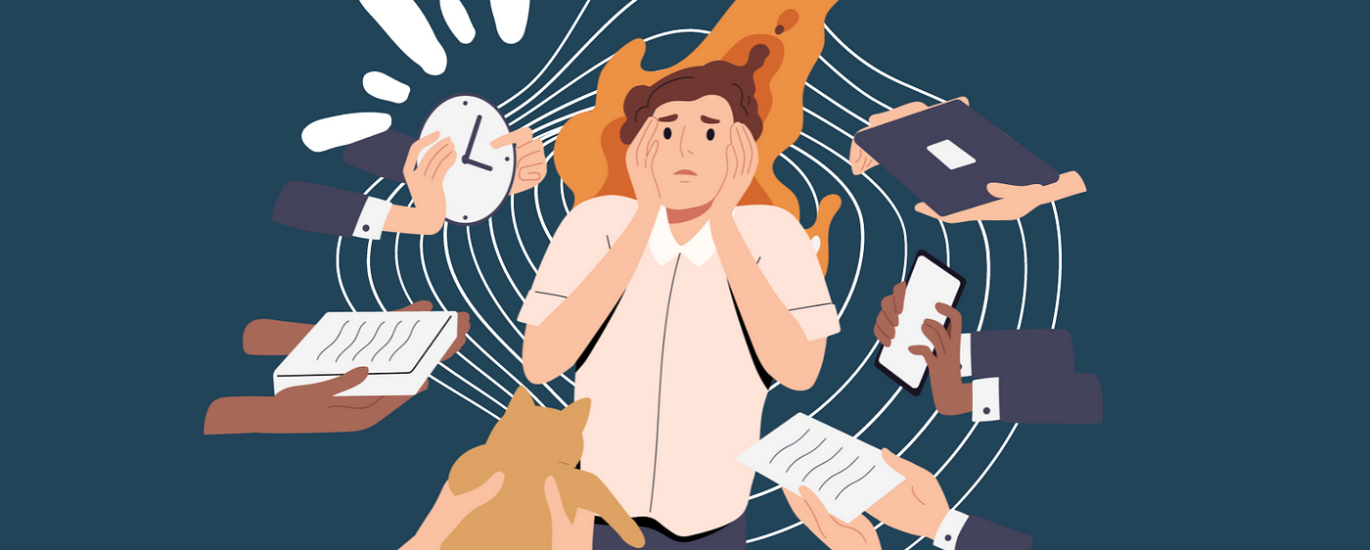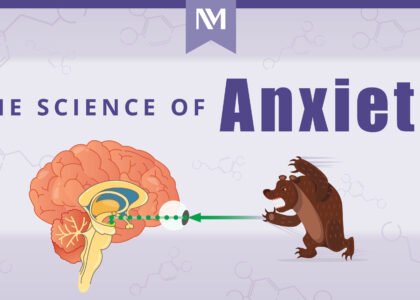No wonder many people today find themselves fighting work-related anxiety. From tight deadlines and burdensome projects to office politics and unrealistic expectations, workplace stress can easily overwhelm employees. Today, work-related anxiety has become one of the main causes of mental health problems in any part of the world. However, the good news is that it’s absolutely possible to handle and reduce this stress with practical strategies. In this blog, we’re going to discuss some actionable tips for reducing work-related anxiety and stress, which would enable you to thrive in your professional environment.
Understanding Work-Related Anxiety
Anyone, no matter the profession or rank in the workplace, can have work-related anxiety. It feels like the constant stress or fear connected to your work environment. Perhaps it is the pressure to meet deadlines, fear of mistakes, or fear of job security. Anxiety at work results in physical, emotional, and mental exhaustion. Some of the common symptoms of work-related anxiety include racing thoughts, irritability, fatigue, difficulty sleeping, muscle tension, and trouble concentrating.
When work-related anxiety is left unattended, it can affect one’s professional life and personal life. But with the proper tools and mindset, a person can learn how to cope with anxiety and stress at work much better.

Identify Stress Triggers
Identify what triggers your stress. Are there certain tasks or situations that make you anxious? Is it the heavy workload, unrealistic expectations, lack of control, or conflicts with colleagues? Once you identify what triggers your stress, you can take proactive steps to reduce its impact.
Start by keeping a stress journal. Write down moments when you feel anxious at work and what led to those feelings. Is it a challenging project, a demanding boss, or fear of failure? Once you identify the cause of your anxiety, you can start addressing it head-on. For example, if you tend to get anxious facing tight deadlines, break large projects into smaller tasks and set more manageable deadlines.
Prioritize and Delegate Tasks
One of the main sources of work-related stress is having too much on one’s plate. It’s easy to feel anxious about getting everything done in time when there is just too much to do. Learn to manage your time and prioritize tasks according to urgency and importance. Start every morning with a to-do list ranked from the most important to the least.
It’s also important to delegate tasks whenever possible. If you’re part of a team, ask colleagues for help with certain responsibilities or share the workload. Delegating tasks doesn’t mean you’re incapable of handling them; rather, it’s a way to manage your resources better and ensure that tasks are completed efficiently. Don’t be afraid to communicate with your boss or team about the need for assistance.
Take Regular Breaks
Most people work continuously, believing that the more they work, the less anxious they will be. However, this is actually a surefire way to increase work-related anxiety. According to studies, working in short cycles with breaks between them can improve concentration, productivity, and mental clarity.
During the course of your workday, set a timer to remind you to take short breaks every hour or so. Whether it’s stretching, taking a walk around the office, or practicing deep breathing, stepping away from your work helps your brain reset and reduces stress. These short breaks can make a big difference in how you manage work-related anxiety and help you maintain a calm, focused mindset throughout the day.
Mindfulness and Relaxation Techniques
Mindfulness, with relaxation techniques, fights work anxiety; it is the ability to be mentally present in the current moment while focusing on your thoughts and feelings without judgment. With regular practice, mindfulness becomes a very efficient stress management tool by supporting relaxation and emotional regulation.
Consider adding some mindfulness practices to your daily practice. Meditate, breathe, or engage in progressive muscle relaxation; all these can help alleviate anxiety and improve concentration. Even focusing on your breath for a few minutes or engaging in a short meditation session can work wonders to clear your head and alleviate stress.
Many employees find that apps such as Headspace or Calm are helpful in guiding them through mindfulness exercises during breaks or before starting their workday. By regularly practicing mindfulness, you’ll be better equipped to deal with stressful situations at work without feeling overwhelmed.
Set Realistic Expectations and Boundaries
Setting realistic expectations for yourself and others is essential for reducing work-related anxiety. Often, people put unnecessary pressure on themselves by expecting perfection, which leads to feelings of inadequacy or stress when things don’t go as planned. Instead, aim to set achievable goals and recognize that it’s okay to make mistakes or have setbacks.
Establish limits as you might with your colleagues or bosses: if you are flooded by too many tasks to the point that you believe the task load is unmanaging-ability, communicate that appropriately with others. Saying no because of overload doesn’t show lack of productivity-it indicates that you are managing the well-being of your psyche.
Seeking Colleagues or Supervisor’s Support
You do not need to go through work anxiety in solitude. The establishment of a work-related support network is incredibly relieving in managing work-related anxiety. If you are overwhelmed by something, you should go and talk to your colleague or supervisor that might be able to alleviate part of the burden on your end or give you further assistance. Sometimes having a listener helps relieve pressure.
It is also helpful to create a positive and supportive workplace. Open, honest communication with your team members reduces the stigma of anxiety and promotes a culture of understanding. A good support system at work can help you better manage your anxiety and make the workplace environment less stressful.
Exercise to Reduce Stress
Physical activity is one of the best ways to reduce anxiety and improve the level of mental health. It aids in lowering the levels of the stress hormones, such as cortisol, while increasing the production of endorphins, which are considered as the body’s natural mood lifters. When a person engages in regular physical activity, that helps him or her manage anxiety linked with work and remain better in control of stress.
You do not need to be in the gym to reap the benefits of exercise. Walking briskly at lunch time, stretching at work, or even yoga in your home can all really cut down on anxiety and bring greater mental clarity. It just has to become part of your daily routine so that you are better equipped to handle stress in the long run.
Work-Life Balance
Balancing work and life is important in managing work-related anxiety. It is easy to get overpowered by work, especially in cases where one is passionate about what is being done, but failure to set aside time for personal activities leads to burnout. One needs to maintain a work-life balance for long-term mental health maintenance.
Allocate time each day to do whatever you like outside of work, whether reading, spending time with loved ones, or pursuing a hobby. It creates clear boundaries between work and personal time, so you are not constantly thinking about work-related stress, letting your mind rest and recharge.
Seek Professional Help if Necessary
If your work-related anxiety becomes overwhelming and unmanageable, it may be time to seek professional help. A therapist or counselor can provide you with the tools and strategies you need to cope with anxiety more effectively. Cognitive Behavioral Therapy (CBT) is particularly helpful for managing anxiety and stress, as it focuses on changing negative thought patterns and behaviors.
In some cases, medication can be prescribed to help with anxiety symptoms. Always talk to a healthcare professional if you feel your anxiety is significantly impacting your ability to function at work or in other areas of your life.

Conclusion
Managing work-related anxiety is a process that requires a proactive approach, self-awareness, and commitment to your mental health. Identifying the causes of stress, establishing boundaries, and practicing relaxation techniques and incorporating physical exercise and mindfulness in daily routines can help reduce anxiety and stress at work. Remember that you do not have to face anxiety alone—seek support when you need it, and always remember to prioritize your well-being. The right strategies can help you regain control over your professional and personal life.























